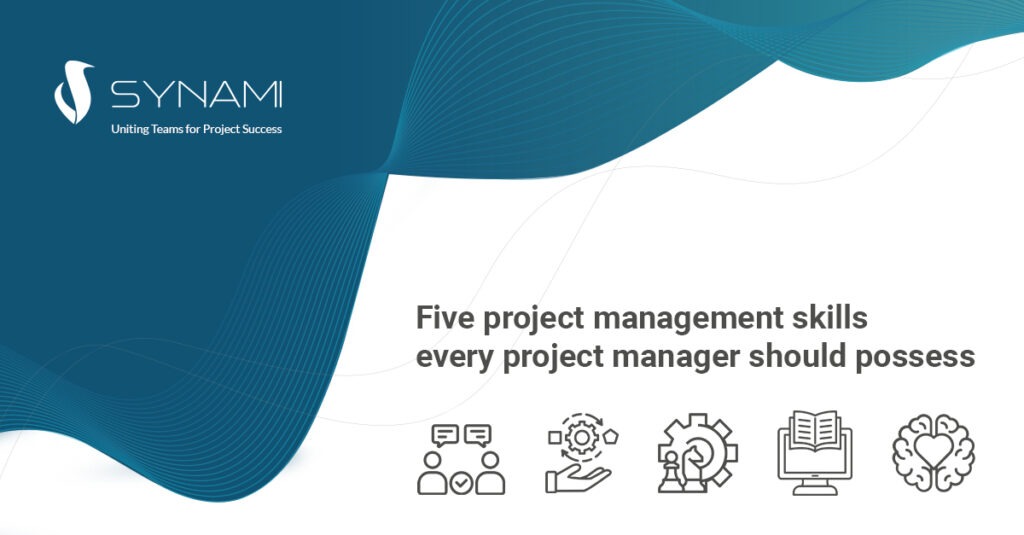Project management requires an extensive skill set encompassing communication, strategic thinking, leadership, adaptability, risk management, stakeholder engagement, and digital proficiency. The ability to deal with complex teams, projects, and stakeholders becomes crucial for project managers while they handle them.

Project management skills form the foundation of a project manager’s toolkit, equipping them to navigate the complexities of project lifecycles with finesse and precision. These abilities allow project managers to lay the groundwork for projects through careful planning and guide them toward successful completion by managing the resources, timelines, and stakeholder expectations.
Usually, these project management skills can be broadly categorized into three major categories: technical skills, interpersonal skills, and strategic skills.
This article explores five crucial skills that all project managers must adopt in 2024 to maintain a competitive edge in a setting that is becoming more complex and dynamic.
- Adaptability and Agile Mindset: With fast technological changes, market conditions, and global events, project managers need to embrace an agile mindset. Being adaptable allows them to respond promptly to shifting priorities, unexpected challenges, and opportunities, ensuring projects stay on track despite uncertainties.
- Effective Communication: Clear and concise communication remains a cornerstone of successful project management. Project managers should excel in both verbal and written communication, promoting transparency, collaboration, and alignment among team members, stakeholders, and other project contributors.
- Strategic Thinking: Project managers need to think strategically, understanding how their projects align with organizational goals and broader business objectives. By having a board perspective, they can make informed decisions, prioritize tasks effectively, and steer projects toward delivering maximum value to the organization.
- Emotional Intelligence (EQ): Strong emotional intelligence is crucial for building and managing high-performing project teams. Project managers with high EQ can empathize with team members, resolve conflicts constructively, and motivate individuals to achieve their best performance, nurturing a positive and inclusive project environment.
- Tech Savviness and Digital Literacy: Project managers must stay current with technological advancements and tools to streamline project workflows, enhance collaboration, and improve productivity. Staying current with emerging technologies and leveling up project management software enables them to develop innovative solutions for better project outcomes.
In addition to the skills mentioned, we must not forget the most important quality of every project manager, which is Leadership. Every project manager needs strong leadership skills to inspire and motivate their teams, foster collaboration, and drive project success.
Leadership involves setting a clear vision, providing direction, empowering team members, and facilitating their professional growth. A good project manager leads by example, demonstrating integrity, flexibility, and a commitment to excellence, which encourages team members to perform at their best.
By embracing adaptability, leveraging technology, prioritizing communication, mastering remote team management, and committing to continuous learning, project managers can lead their teams with confidence, resilience, and effectiveness, delivering exceptional results in a world full of changes.

